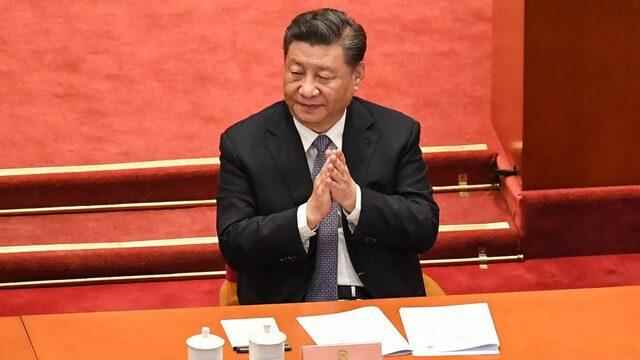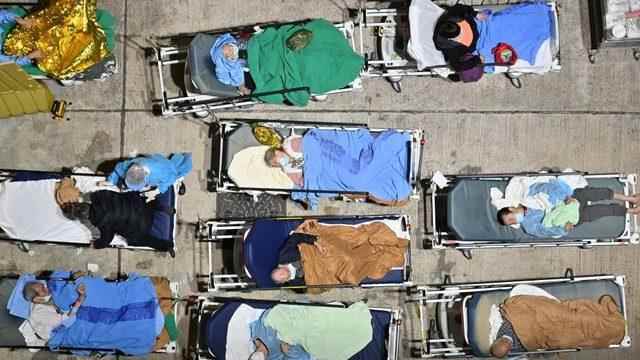China and Hong Kong have once again peaked with the spread of the Omicron variant in the coronavirus pandemic.
How long can China, which follows a very strict restriction policy compared to most of the world, continue this system as the world moves to a policy of “living with Covid”?
keep the balance
The drastic measures, curfews and aggressive bans that China has implemented in the last two years to prevent the spread of Covid seem to have paid off.
While many cases and deaths were seen in the rest of the world in 2020, Chinese President Xi Jinping announced that drastic measures had resulted and his country was successful in combating the virus.
In both mainland China and Hong Kong, drastic measures were implemented for the “Zero Covid” policy.
But then things started to change.
The policy of zero Covid, that is, no people infected with Covid-19, first began to suffer with the emergence of the Delta variant. In 2021, as the country eased restrictions, it again took drastic measures against the faster-spreading Delta variant.
Now, with the Omicron variant, the question marks that were in the minds at that time re-emerged.
Thousands of new cases are reported every day in mainland China. So much so that millions of people in the northeastern Jilin region are again facing curfews. This is the second time China has completely closed a province after the outbreak in Wuhan.
In Hong Kong, where there has been almost no Covid-19 case for a long time, 30 thousand cases and over 200 deaths are seen every day.
It is also reported that people with the virus are applying to hospitals intensively and that some of them need intensive care.
This has never been seen in Hong Kong for the past two years.
The Chinese government has not officially given up on its Zero Covid policy. But he does give some indication that he believes this may not be the best method of dealing with the virus.
Earlier this week, China’s National Health Commission announced that mild cases in central areas could be quarantined at home instead of being admitted to hospitals. Conditions were eased to end the quarantine of patients.
Speaking to the BBC, Prof. from Hong Kong University. Jin Dong-yan says that even asymptomatic cases have been hospitalized in the country before:
“The proposal to quarantine regionally now demonstrates their acceptance of the fact that there are actually large numbers of people in hospital who do not need care.”
This change of perspective can be seen everywhere, albeit slowly.
Last year, epidemiologist Zhang Wenhong, who advises the Chinese government on epidemics, said that “China must at some point learn to live with the virus.”
Upon these words, he received very harsh criticism; Some said that China is collaborating with the West, which criticizes its pandemic policy, while others say it is “traitor”.
However, in a social message he shared this week, he said, “China may have to implement the Zero Covid policy for now, but it should not be afraid to switch to a more sustainable policy,” and this time it did not face harsh criticism. Many even wrote that they agreed with him.
Politics and the pandemic
How much longer can China hold out?
Experts do not expect a serious policy change until the end of this year. Especially, the possibility of increasing cases with Omicron in the recent period to create a new burden in hospitals makes such a change difficult.
Such a change could lead to a serious increase in the death toll, as is currently the case in Hong Kong.
The country will either see many cases and deaths in the short term and learn to live with Covid-19 in the long term, or it will continue this policy.
Experts predict that China will choose the first option, especially before the Communist Party Congress.
The 20th party congress of the Communist Party of China is one of the most important political events of the last decade for the country. On paper, this will be the congress where Xi Jinping will step down and end his two-term presidency.

This two-term restriction was lifted, however, as confidence grew that Xi Jinping would once again be re-elected and consolidate his power.
Michael Cunningham, of the Heritage research foundation, says that there are no serious policy changes in the country around the time of the congress:
“The government generally takes a stand to preserve the stability it has during the party congress years, this is done to avoid possible crises instead of making tough decisions. Because if new resolutions fail, this may cause them to lose their power in the congress.” said Mr Cunningham in a report.
